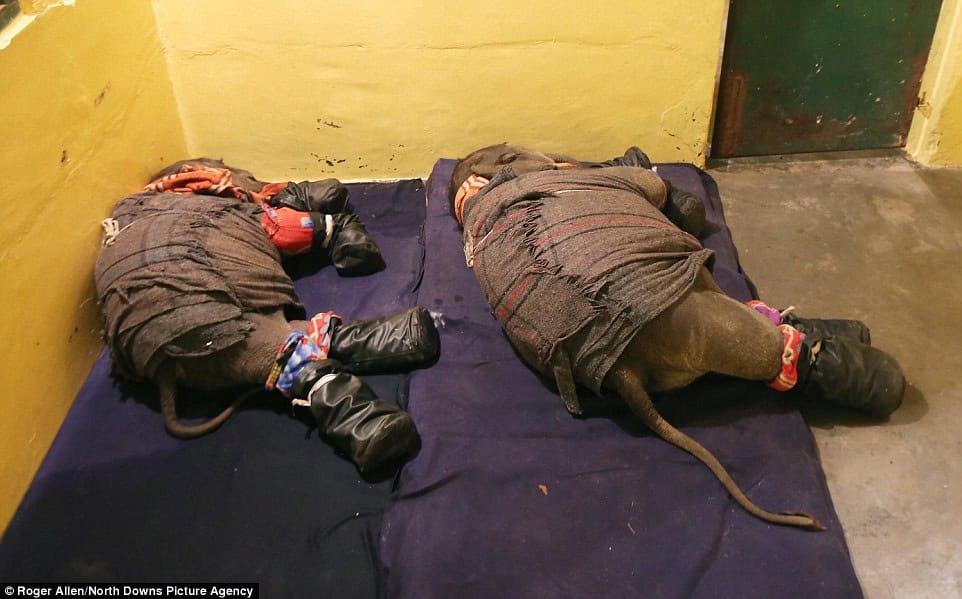Rupa, a three-month-old elephant, and eleven-month-old Aashi struggled to rest on the cold concrete floor of their rescue center in northeastern India.

Rupa had been rescued after falling down a steep rocky bank, which led to her separation from her mother. Villagers found her and brought her to the rescue center for safety.
Meanwhile, Aashi, whose name means “joy and laughter” in Hindi, was found alone in an Assam tea garden after a brief reunion with her herd.

Recognizing their need for warmth and comfort, Dr. Panjit Basumatary, a veterinarian at the International Fund for Animal Welfare (IFAW) rescue center, devised a thoughtful solution.
Dr. Basumatary introduced custom-made pajamas and night socks for the baby elephants. Initially met with skepticism, the elephants quickly adapted to their new nightwear, showing significant improvements in their well-being.
This initiative is crucial in a region where baby elephants are increasingly separated from their mothers due to poaching and human encroachment on their habitats.

The area is known for its high concentration of Asian elephants and hosts the world’s largest population of greater one-horned rhinoceroses.
Rupa, who initially had severe wounds, is now shown comfortably wearing her pajamas and being fed milk, highlighting the drastic change in her condition.
Under the tender care provided at the IFAW center, Rupa and Aashi are gradually healing from their traumatic experiences.

The plan is to reintroduce them into the wild in about two years, either in Kaziranga or Manas, a nearby national park, once they transition from bottle-fed formula milk.
Caring for these baby elephants is challenging and costly, with each elephant requiring around £50 a day for the first three months and needing new boots every two weeks.
Philip Mansbridge, the UK director of IFAW, emphasizes the importance of these rescue efforts, aiming to ensure that the endangered Asian elephants not only survive but thrive.

As Rupa and Aashi snuggle in their custom-made pajamas, they are guided to their sleeping quarters, ready for a peaceful night’s sleep under the watchful care of Dr. Basumatary and the rescue team.
